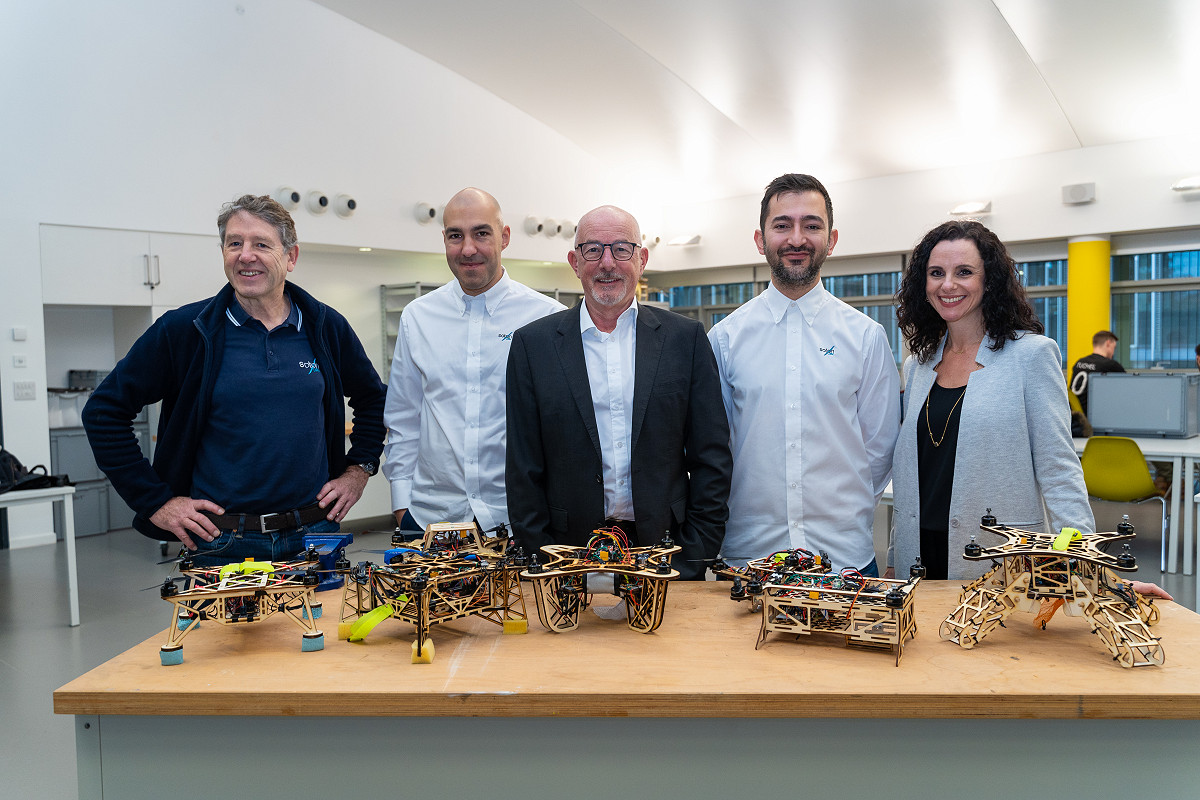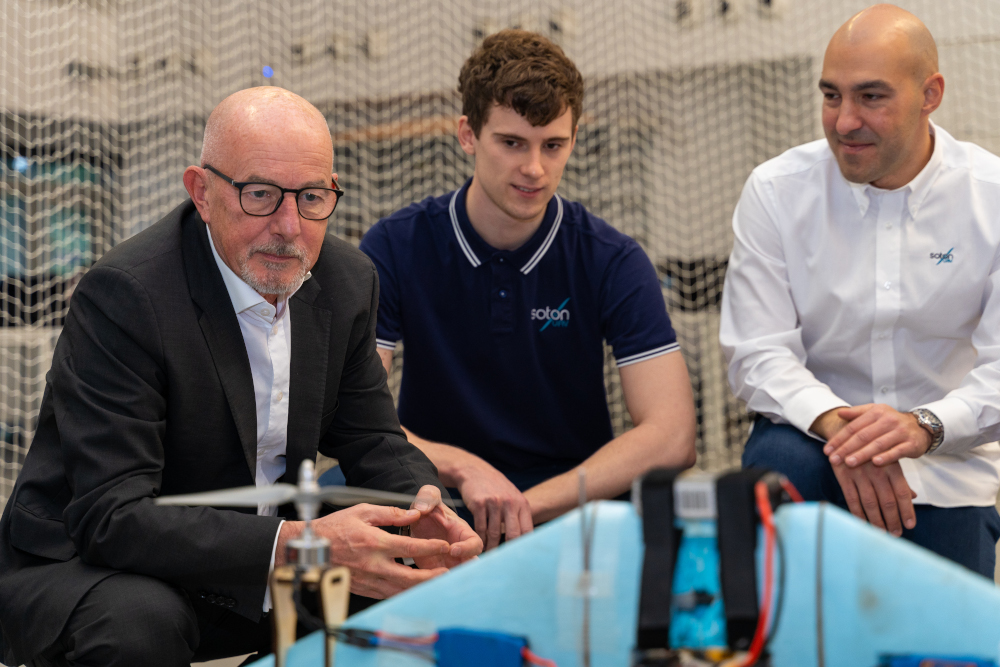The Turner-Kirk UAV Research Programme | Turner Kirk Trust

Soton UAV is a research team and department consisting of academics, staff and post-graduate students at the University of Southampton. The team designs, manufactures and flies unmanned aerial vehicles (UAVs) from a research perspective. Many of their systems make use of cutting-edge design methods, state-of-the-art manufacturing techniques and novel applications of technology.
Up until now, monitoring, tracking and evaluating the impact of environmental degradation from climate change and natural disasters in remote, rural areas has been difficult and impractical. Often these locations – such as monitoring forest fires in areas of natural importance – are either too remote to reach or too large to monitor effectively for most environmental agencies.
While unmanned aerial vehicles (UAV) are currently used to collect important data from remote regions, their practicality has been restricted by their efficiency and battery life, which significantly limits their reach. And while longer-range UAVs exist, they are often too expensive to deploy on a larger, more widespread scale.
If technological advancements were made to UAV technology, this could make a difference in the fight against climate change and poaching.
The Turner Kirk Trust provided a philanthropic gift of £15,000 to the University of Southampton to launch a new research programme to improve existing UAV technology for use in large and remote areas.
Named the Turner-Kirk UAV Research Support Programme, the initiative funded three groups of fourth-year students in the University’s engineering department. The students focused on discovering innovative methods of improving drone battery life and efficiency, with a view to developing new, inexpensive ways to adapt existing, pre-made drones. They were also tasked to make other non-electrical modifications to UAVs to minimise their energy use.
The objective of the programme was to develop new UAVs that can be used for surveying, mapping forests and tracking biodiversity – as well as limiting the damage done by poachers in affected regions through the conservation of endangered species.
Funded by the Trust, The Turner-Kirk UAV Research Support Programme has appointed three fourth-year student teams within the department, all of which are focusing on ways to improve the efficiency and extend the battery life of existing UAV hardware.
The teams are working on studying novel aircraft configurations designed to minimise the energy requirements. Specifically, the teams have been researching the positioning of the propellers on long-range drones with a view of decreasing energy use during flight times.
The UAV department within the university has also partnered with the University of Bristol and will be embarking on a field trip to Guatemala in 2021 to monitor a live volcano and test its new modified drones in a real-life environment.
In January 2021, the Trust refunded the programme with a £15,000 donation for another academic year across 2021/22.
Key successes
Funded 3 fourth-year student teams
New collaboration with the University of Bristol
Field trip to Guatemala in 2022
“This generous donation from the Turner Kirk Trust will help us develop technology that can be used by environment agencies worldwide to make a real difference in minimising the impact of climate change and natural disasters.”
